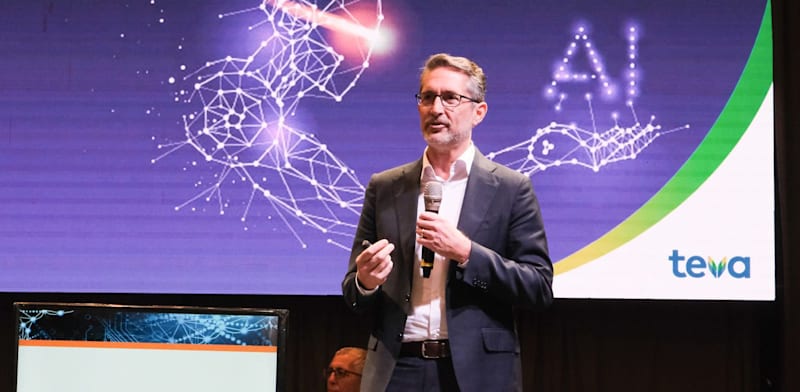Fantasies of an AI revolution in drugs have met the reality of the industry's conservatism. But Teva’s head of R&D offers a glimpse into the AI tools his company actually uses, and is looking for. Startups take note.
The idea of artificial intelligence solutions for drug development has been touted by everyone from startups to giants like Nvidia and Alphabet, telling us how AI will radically change the pharma sector. But, as with other sectors, there is a gap between AI's revolutionary promise and what’s actually happening. Implementing an AI solution at pharmaceutical companies, which are usually big, heavy entities, requires an endless investment of time and money.

Moreover, the sector is characterized by conservatism, stemming from both the caution required when dealing with human life, and the burden of regulation. So, out of all the possibilities, what are pharmaceutical companies really doing today with artificial intelligence? At the 22nd BIOMED Israel Conference and Exhibition, held about a month ago in Tel Aviv, Dr. Eric A.
Hughes, executive VP of global R&D and chief medical officer at Teva Pharmaceutical Industries, revealed not only his dream for implementing AI at the company, but also what Teva is already doing in practice today with these capabilities. Hughes made his remarks during the session, "Is AI revolutionizing drug discovery and clinical development?" led by Dr. Anat Cohen Dayag, president and CEO of Compugen, and Dr.
Dan Goldstaub, scientific co-fo.























